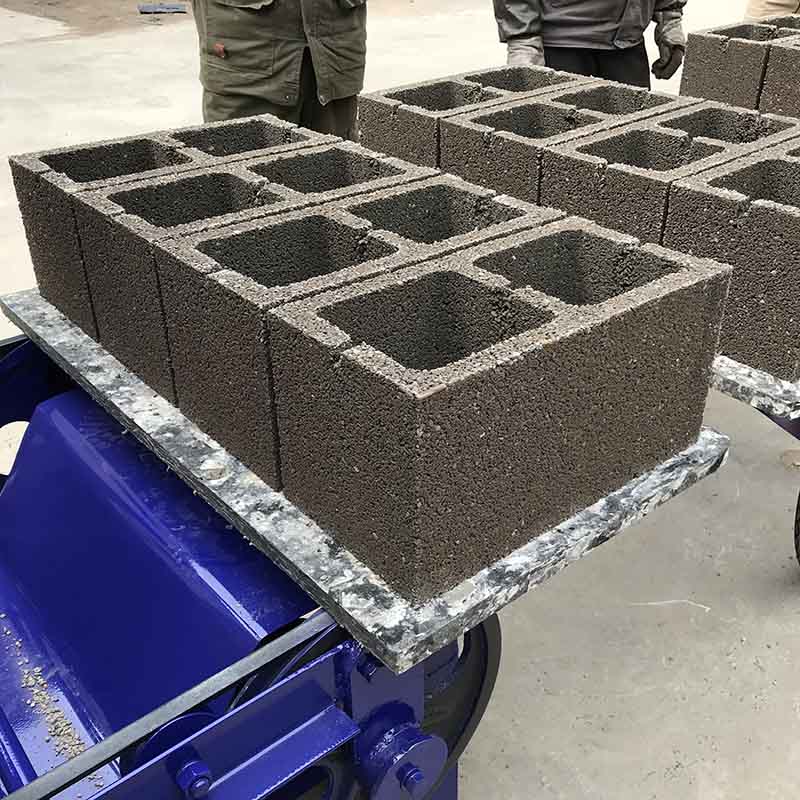
Image source:Aiwei block machine
Introduction
Water is a valuable resource, and its efficient management is crucial in the brick manufacturing industry. Chinese brick making machines have undergone significant advancements in water usage and conservation practices. Efficient water management not only reduces environmental impact but also enhances operational efficiency and sustainability. This article explores the importance of water usage and conservation in Chinese brick making machines, discussing key strategies, technologies, and benefits in managing and optimizing water resources throughout the brick manufacturing process.
Water Usage in Brick Making
Raw Material Preparation:
Water is essential for the preparation of raw materials such as clay or sand. It is used for mixing, homogenizing, and controlling the moisture content of the materials to ensure proper brick formation.
Molding and Shaping:
Water is applied during the brick molding process to facilitate the release of the formed bricks from the molds and to enhance their surface quality.
Cooling and Cleaning:
Water is used for cooling freshly molded bricks and cleaning equipment, molds, and production areas.
Challenges in Water Management
Water Availability and Scarcity:
Water scarcity is a global challenge, and the brick manufacturing industry needs to address this issue. Ensuring responsible water usage and conservation practices is crucial for sustainable operations.
Environmental Impact:
Excessive water usage can lead to the depletion of local water sources and negatively impact ecosystems, particularly in water-stressed regions. Additionally, improper water disposal can contribute to pollution of water bodies.
Operational Efficiency:
Optimizing water usage improves operational efficiency and reduces costs. Efficient water management practices result in reduced water consumption, lower energy requirements for water heating or cooling, and minimized wastewater treatment needs.
Water Management Strategies
Chinese brick making machines employ various strategies to optimize water usage and promote water conservation throughout the manufacturing process.
Water Recycling and Reuse:
Implementing water recycling systems allows for the treatment and reuse of process water. Effluent water can be treated and recycled for various non-potable purposes, such as equipment cleaning or dust suppression.
Closed-loop Systems:
Closed-loop systems minimize water losses by recirculating water within the manufacturing process. This approach reduces the need for fresh water intake and lowers wastewater generation.
Process Optimization:
Optimizing the manufacturing process reduces water consumption. Precise control of water flow, timing, and distribution ensures adequate hydration of raw materials while minimizing excess water usage.
Water-efficient Equipment and Technologies:
Chinese brick making machines are incorporating water-efficient technologies, such as low-flow spray nozzles, water-saving sensors, and automated systems that precisely regulate water usage.
Rainwater Harvesting:
Rainwater harvesting systems collect and store rainwater for use in brick manufacturing processes. This practice reduces reliance on freshwater sources and provides an alternative water supply during periods of water scarcity.
Technological Advancements in Water Management
Advancements in technology have significantly contributed to improved water management in Chinese brick making machines.
Water Recycling Systems:
Advanced water treatment and recycling systems enable the purification and reuse of wastewater generated during the manufacturing process. These systems remove impurities and contaminants, making the water suitable for reuse.
Water-efficient Spray Systems:
Advanced spray systems use precision nozzles and targeted water distribution to minimize water waste during brick molding and surface treatment processes.
Water Monitoring and Control Systems:
Real-time monitoring and control systems provide valuable data on water usage, allowing operators to optimize water flow, identify inefficiencies, and make informed decisions for water conservation.
Water-saving Sensors and Automation:
Sensors and automation technologies are used to regulate water usage based on specific process requirements. These technologies optimize water flow, reduce human error, and ensure precise water application.
Benefits of Water Conservation
Implementing effective water management practices in Chinese brick making machines offers numerous benefits:
Environmental Sustainability:
Responsible water usage and conservation practices minimize water extraction from local sources, protect ecosystems, and reduce the industry’s overall water footprint.
Operational Efficiency:
Optimizing water usage improves operational efficiency, reducing costs associated with water consumption, wastewater treatment, and energy requirements for water heating or cooling.
Resource Conservation:
Water conservation preserves freshwater resources, ensuring their availability for other sectors and future generations.
Regulatory Compliance:
Adhering to water usage regulations and standards ensures compliance, avoiding legal penalties and reputational risks.
Sustainable Image and Market Advantage:
Emphasizing water conservation practices enhances a company’s reputation and provides a competitive edge in a market that values environmental responsibility.
Conclusion
Water usage and conservation in Chinese brick making machines are vital for the sustainable and responsible operation of the brick manufacturing industry. By implementing efficient water management strategies, such as water recycling and reuse, process optimization, and the integration of water-efficient technologies, manufacturers can minimize water consumption, reduce environmental impact, and enhance operational efficiency. Technological advancements in water management, such as water recycling systems, advanced spray systems, and monitoring and control systems, further contribute to effective water conservation. Embracing water conservation not only benefits the environment but also results in cost savings, regulatory compliance, and market competitiveness. As the Chinese brick making machine industry continues to evolve, a continued focus on water usage and conservation will be crucial for long-term sustainability and success.
